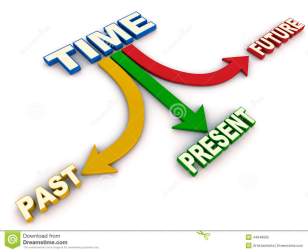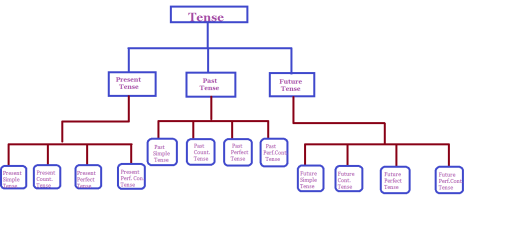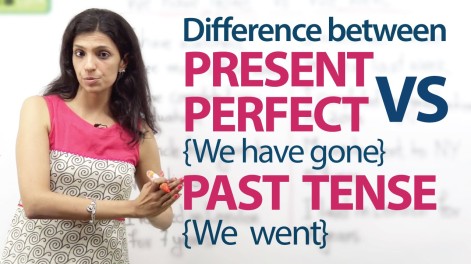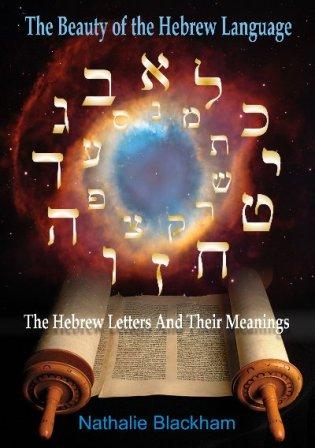I read in a Christian magazine, recently, some academic Theological Seminary professor making a vague and faithless kind of point asking the question; “How can the Old Testament Prophets be talking of something that was future to them, whilst using past tense language?” Oh dear! He then attempted to convince his readers that because certain classically famous lines of scripture, universally seen as referring to the Second Advent of Christ, are written in past tense, the entire bible reading world over the last two millennia must have it wrong! “How can it be future when the prophets talk in past tense?” When intelligent and academically qualified men with thoughts like this are given the responsibility of teaching future ministerial material, one has to shudder at the thought of where things are going. It is as Henry Ford said (at least I think it was He) “The existence of the Church is one of the greatest proofs that God is alive, for no organization or group of people, could stay in business for two thousand years under such incredibly bad human management without direct divine intervention.” Unfortunately people are influenced by this kind of perversion of biblical interpretation, especially when it’s a Bible College tutor in his later years and claiming something like 50 years ministry experience, and “wisdom.” So, I proffer my immediate and hasty response on two levels.
- A Principle of Prophetic revelation explained in plain English.
- The Plain Facts of translating Biblical Hebrew.
 I do not claim to be an academic, but I have mixed and mingled with Prophets, Prophetic ministers, and many who prophecy in local churches, and I herewith offer my answer to the above referred to academic, who shall remain nameless. (The truth is that it was a magazine I glanced at for a few minutes in a church foyer. I don’t even remember the name of the publication. All I grasped was the writer’s thought.)
I do not claim to be an academic, but I have mixed and mingled with Prophets, Prophetic ministers, and many who prophecy in local churches, and I herewith offer my answer to the above referred to academic, who shall remain nameless. (The truth is that it was a magazine I glanced at for a few minutes in a church foyer. I don’t even remember the name of the publication. All I grasped was the writer’s thought.)
The Spiritual Principle of Prophetic revelation in regard to tenses used in its delivery.
The source of prophecy is God Himself. The means by which a divine prophetic word comes to human kind is varied and diverse. Visions, dreams, voices and transcendent experiences are aplenty in the Bible. It has to be said, the recipients of God’s word occasionally sound as if they are not quite sure where they were at the time, or indeed, whether it was anywhere in the physical realm at all. The weird and wonderful divinely supernatural scenarios abound throughout the Scripture’s metanarrative. Paul writes at one point about not knowing whether he was in the body or out of it. How strange an experience was that? Ezekiel talks of being picked up by a single hair of his head and being transported from Babylon and the River Chebar over several hundred miles to Jerusalem in order to see what was going on there prior to the fall of that great city in 587 BC. Was he physically transported? Or was it some spiritual vision? One has to concede how remarkable some of these episodes are no matter how it is interpreted by believer or Atheist alike. Isaiah was in the temple when he saw God’s glory. But Isaiah was not of the tribe of Levi, and so was not allowed into the Solomonic Temple in Jerusalem at all. And so we are left wondering. Was he actually in the heavenly temple, in a transcendent world – a parallel universe, if you will ? God clearly spoke at sundry times and diverse manners to the fathers.
 Various tenses are forms taken by verbs that indicate the time of an action or a movement. In English there are three main tenses, of course, past, present and future.
Various tenses are forms taken by verbs that indicate the time of an action or a movement. In English there are three main tenses, of course, past, present and future.
Prophecy, even today, in my experience as an observer and an insatiable enquirer, can often occur in the same varied manner as of within the Old Testament.
Prophecy is a thing of the Holy Spirit. The testimony of Jesus is the Spirit of prophecy. The divine source of the prophetic is outside of time. The manner in which a prophecy is delivered, whether it is a divine remark about something historical, predictive of something future, or stated as being at the present moment of the pronouncement is sometimes irrelevant when the prophetic matter is properly understood. Understanding and discernment are vital for the correct dividing of the word of truth.
 I am English. English is my first language. I speak a spattering of German, but I think and talk and dream in English. My knowledge of Hebrew is tiny. If and when I negotiate Hebrew, I surround myself with books and websites to keep my conclusions straight. My love is English. The English language is absolutely wonderful and expansively expressive. I want to explain my take on an issue. Follow my line of thought as I present to you several scenarios of a hypothetical prophet speaking supernaturally of something that is to happen in his future.
I am English. English is my first language. I speak a spattering of German, but I think and talk and dream in English. My knowledge of Hebrew is tiny. If and when I negotiate Hebrew, I surround myself with books and websites to keep my conclusions straight. My love is English. The English language is absolutely wonderful and expansively expressive. I want to explain my take on an issue. Follow my line of thought as I present to you several scenarios of a hypothetical prophet speaking supernaturally of something that is to happen in his future.
Our first hypothetical scene is straightforward. Our imaginary man of God is consciously standing in, let us imagine, 700 years prior to the birth of Christ. He sees, hears and/or perceives that in a far off future date that the Messiah is coming. So, he pronounces in a straight forward and plain manner. “Messiah will come. He will be born, live thirty three years and die, and on the third day will rise again.” No problem! Future tense. Our hypothetical prophet has made himself understood and spoken clearly.
But that isn’t the full content of the story.
 The following day, perhaps, our pretend prophetic character receives the same communication, yet in a different manner. This second scenario is of exactly the same message. It is still 700 B.C. However, this time our man has a vision. The vision is so lucid and clear that he sees it in motion in the same way that we today would see a movie. Without doubt, many of the writing prophets were seers. In this vision he sees Messiah born, he sees Messiah full grown, he sees Messiah die and be buried, and then he is aware of His rising from the dead. So he stands up to deliver his message. It is exactly the same message as in scene 1 above, excepting for the language which is, by necessity of integrity, of a different tense. This time he declares, “I saw Messiah having arrived. He was born and lived for thirty three years, and then was executed. On the third day I saw Him and clearly He rose again.” So here we have exactly the same message delivered in exactly the same chronological perspective and geographical location. But this time he speaks in past tense. He knew it was future. In retrospect we know full well that it was 700 years distant (as in Isaiah’s future), yet, he speaks in past tense. The simplicity of my logic is painfully obvious. One needs assistance to misunderstand it.
The following day, perhaps, our pretend prophetic character receives the same communication, yet in a different manner. This second scenario is of exactly the same message. It is still 700 B.C. However, this time our man has a vision. The vision is so lucid and clear that he sees it in motion in the same way that we today would see a movie. Without doubt, many of the writing prophets were seers. In this vision he sees Messiah born, he sees Messiah full grown, he sees Messiah die and be buried, and then he is aware of His rising from the dead. So he stands up to deliver his message. It is exactly the same message as in scene 1 above, excepting for the language which is, by necessity of integrity, of a different tense. This time he declares, “I saw Messiah having arrived. He was born and lived for thirty three years, and then was executed. On the third day I saw Him and clearly He rose again.” So here we have exactly the same message delivered in exactly the same chronological perspective and geographical location. But this time he speaks in past tense. He knew it was future. In retrospect we know full well that it was 700 years distant (as in Isaiah’s future), yet, he speaks in past tense. The simplicity of my logic is painfully obvious. One needs assistance to misunderstand it.
But we still haven’t finished with this issue.
Let us picture again, the following day, a third prophetic revelation. Our blossoming prophet dreams a dream, and/or sees a vision in which he follows the Messiah as if he is present throughout each scene. I have heard modern prophets report such revelations, and am sure that some of the Old Testament seers and prophets had this kind of experience. In such a wonderful, “real-time,” vision, the prophet declares, though still living in the year 700 B.C., “I am seeing Messiah being born. I am seeing Him walk amongst men. I am seeing His being abused. I am witnessing Him die. I am seeing Him rise from among the dead. I see it. It appears to me as in the now.” The futuristic scene, is here seen and declared as if it was contemporaneously seen in his very presence, even though it is 7 centuries before the events were to take place place.
 Just to fill in the picture further, we need to add that it is not necessary for the prophet to know whether his vision will be fulfilled in the following week or seven millennia from the day he saw it. We also need to note that the language I am using to make the point is much more specific and particular than any of the prophets wrote. The New Testament tells us that the prophets did not really fully grasp what it was they were speaking of.
Just to fill in the picture further, we need to add that it is not necessary for the prophet to know whether his vision will be fulfilled in the following week or seven millennia from the day he saw it. We also need to note that the language I am using to make the point is much more specific and particular than any of the prophets wrote. The New Testament tells us that the prophets did not really fully grasp what it was they were speaking of.
In these three hypothetical scenes, we are explaining what happens in stark and concrete reality.
There are several other tenses and modus operandi of legitimate prophetic speech that I will not necessarily pursue, but there is one final remark that rounds up all I have written above. These issues may not be important in the spoken prophetic gift today, but it is vitally important when reading such things in the inspired words of scripture. My final example seems even more complex, yet absolutely essential to be noted to maintain the integrity of our hypothetical prophet.
What if the prophet saw the entire revelation in sections on different days and in different modes? He sees it differently each time. So much so, that when he stands up to declare the message he prophesies and says. “Messiah will come (future tense). See! He is being born as a man (present tense). I saw him live amongst men (past tense). He was abused (past perfect tense), and I see Him die (present tense). He will rise again from the dead (future tense) and has ascended in great glory! (past tense)” So now we have, legitimately, the one coherent message in correct chronological order, but stated in different tenses. Even in such a manner as this, the message still has complete integrity and accuracy. The prophet is declaring what the Spirit of God has showed him, and he is plainly stating what he has seen and what he knows.
Some academics of the English language claim that there are up to 24 tenses in English. How wonderful is that! I was taught at school that there are only twelve tenses in English, that is 4 modes each of past. Present and future.
I am making the point that when a man is “in the Spirit,” and receives heavenly communications, we are playing with fire if we are to deride the inspired remark simply because he doesn’t use the correct mode of normal written English in the pragmatic and natural world in which we live. Prophets, quite often, are neither pragmatic nor natural, normal nor novelists. The Spirit speaks from eternity into time, and the prophets speak the word in the earth in order to impact eternity. And the human recipient might not always fully comprehend what he or she sees, senses or says.
Wonderful! But there is only one problem with my thoughts hitherto! Isaiah wasn’t English, neither did he speak English. We read our English Translations, but the Old Testament was written nearly all in Hebrew, with a little Aramaic thrown in, and the New Testament was originally Greek. So we need to press further.
The Plain Facts of translating Biblical Hebrew.
The Facts of Biblical Hebrew.
 Isaiah was a Hebrew by descent who spoke Hebrew. The issue of tenses is made slightly more complex inasmuch as the Hebrew language as spoken in biblical times was a different Hebrew as is spoken these days in Israel and by Jewish people around the world.
Isaiah was a Hebrew by descent who spoke Hebrew. The issue of tenses is made slightly more complex inasmuch as the Hebrew language as spoken in biblical times was a different Hebrew as is spoken these days in Israel and by Jewish people around the world.
However, considering all our words above about tenses, when reading Old Testament prophecy – hold on to your seats while I inform you of the most phenomenal fact that we need to get our head round when discussing the translation of Biblical Hebrew into English (or indeed into any language): There is no such thing as “tense” in biblical Hebrew.
Modern Hebrew does indeed have tenses, and that we must not forget, however, biblical Hebrew is not a “tense” conscious language. Modern grammarians refer to biblical Hebrew as an “aspectual” language. The same form of a verb can be translated as either past, present, or future depending, of course on the context and, uniquely, various grammatical prompts. The most well-known grammatical prompt in “translator circles,” is what is referred to as the “Vau-consecutive” that makes an imperfective verb refer to the past. This Vau-consecutive is a linguistic structure in Biblical Hebrew that comprises prefacing a verb form with the letter Vau in order to change its tense and/or aspect.
Therefore it is wrong to say that Isaiah 53 and a huge number of other prophecies are in the “past tense,” and therefore must refer to a time before Isaiah. Biblical Hebrew has no tenses. There are many examples of what is wrongly called the “past tense” (properly called “the perfective” or “perfect”) being used for futuristic predictive prophecy. This so called “prophetic perfect tense,” is simply a literary technique used in the Bible that describes future events that are so certain to happen that they are referred to in the past tense as if they already happened. It sounds profoundly confusing if you don’t know Hebrew, but that is exactly what folks say when English is learnt as a second language.
 In the Hebrew ( as well as a little Aramaic) in which the Old Testament was written, when something was categorically set to to occur in the future, it is often spoken of as if it had already occurred in the past. Hebrew scholars are familiar with this turn of phrase and refer to it not only as “the prophetic perfect,” but also the “perfective of confidence,” and/or “the historic sense of prophecy.” I have read some volumes on this subject where it is referred to as the, “here now, but not yet,” or the, “already – but not yet.” The fact that so many experts call it something different suggests it is a kind of unwritten law of the language which has no definitively final epithet. I would suggest that most Bible readers are in no way aware of this aspect of the original Old Testament language. This is the reason why, in all the translations of the Old Testament, in passages where this phenomena occurs, translators cannot make a literal translation into English no matter how hard they try. This means, logically, that they have to actually change the tense of the original in order to keep the translation as understandable English. The English language, in spite of all its glorious complexity, breadth, depth and flexibility cannot cope with the Hebrew “prophetic perfect.” Thus, the “prophetic perfect” is not perceived in English Bibles.
In the Hebrew ( as well as a little Aramaic) in which the Old Testament was written, when something was categorically set to to occur in the future, it is often spoken of as if it had already occurred in the past. Hebrew scholars are familiar with this turn of phrase and refer to it not only as “the prophetic perfect,” but also the “perfective of confidence,” and/or “the historic sense of prophecy.” I have read some volumes on this subject where it is referred to as the, “here now, but not yet,” or the, “already – but not yet.” The fact that so many experts call it something different suggests it is a kind of unwritten law of the language which has no definitively final epithet. I would suggest that most Bible readers are in no way aware of this aspect of the original Old Testament language. This is the reason why, in all the translations of the Old Testament, in passages where this phenomena occurs, translators cannot make a literal translation into English no matter how hard they try. This means, logically, that they have to actually change the tense of the original in order to keep the translation as understandable English. The English language, in spite of all its glorious complexity, breadth, depth and flexibility cannot cope with the Hebrew “prophetic perfect.” Thus, the “prophetic perfect” is not perceived in English Bibles.
The problem is such that when one has different colleges, universities and official bodies formulating a new translation, a hundred learned experts would hold a hundred differing ideas on how the Hebrew “tenseless” text should be translated into readable English. This is why the Old Testament prophets especially vary so much in the multiplicity of English versions. The only people I have spoken to in the flesh that I trust and believe concerning Old Testament translations are those few I have met whose first language is Hebrew. All the English speaking academics who do their work on the grounds that they “know” Biblical Hebrew seem to differ from person to person. Who is the man on the street to trust? I am not saying that translators corrupt the meaning at all. I am saying that English does not have a grammatical construct like the “prophetic perfect.” As a totally random example of what I am saying, here is a huge number of examples on one “prophetic perfect” phrase from Isaiah. You will clearly see what I mean. Remember that all these translations come from translating the same Hebrew text. (By the way, if anybody thinks my statements concerning the tenses here, please feel free to correct me.)
Isaiah 5:13
“Therefore my people removed without knowledge.” (Young’s Literal Translation) PAST SIMPLE
“Therefore my people have gone into captivity…” (KJ 2000 Bible. Webster’s Bible Translation.) PAST PERFECT
“Therefore my people go into captivity …” (Amplified Bible. Amplified Classic Version.) PRESENT SIMPLE
“Therefore my people go into exile” (ESV. ESVUK. NASB. ISV. NAS. WEB. CEB. CJB) PRESENT SIMPLE
“Therefore my people go into exile because they lack understanding.” (ISV) PRESENT SIMPLE
“Therefore my people go into captivity” (New Berkeley Bible. MEV.) PRESENT SIMPLE
“Therefore my people are gone into captivity;” (KJV. American KJV. KJ21. ASV. JPS Tanakh. Jubilee Bible. ERV. BRGV. ) PRESENT CONTINUOUS
“Therefore my people are led away captive…” (Darby Bible Translation) PRESENT CONTINUOUS
“Therefore is my people led away captive…” (Douay-Rheims Bible) PRESENT PERFECT
“Therefore my people are gone into captivity…” (JUB) PRESENT PERFECT
Therefore my people is gone into captivity…” (1599 GeNV) PRESENT PERFECT
“By want of knowledge my Race is stripped” (Ferrar Fenton) PRESENT PERFECT
“Therefore my people will go into exile without knowledge…” (Lexham EB) FUTURE SIMPLE
“My people will go into exile because they don’t understand” (NOG) FUTURE SIMPLE
“… my people will go into exile … (NIV. Holman CSB. H.C. Leupold. NLT. God’s Word Translation.). FUTURE PERFECT
“My people will be captured and taken away [be deported; go into exile/captivity]. (EXB). FUTURE PERFECT
“Therefore my people will end up in exile because they don’t know the score.” (MSG) FUTURE PERFECT
“And so you will be carried away as prisoners.” (GNT) FUTURE PERFECT
“So my people will be captured and taken away” (ICB) FUTURE PERFECT
“Therefore my people will be deported … (NET.) FUTURE CONTINUOUS
“Therefore I will send you into exile far away” (TLB) FUTURE CONTINUOUS
“… That’s why many of you will be dragged off to foreign lands.” (Contemporary EV) FUTURE CONTINUOUS
“My people don’t really know God. So they will be captured and taken away.”(ERV) FUTURE CONTINUOUS
“Therefore my people will have to go into exile … (New World Translation) FUTURE PERFECT CONTINUOUS
 As you can see, so many experts have so many different perspectives concerning the tenses that the prophetic writings convey. To be perfectly frank about this, because English never uses anything like the “prophetic perfect,” (OK! Perhaps, very rarely) most Christians would only be confused if it were in the English read. The past tense is used instead of the future tense when the speaker views the action as being as good as done. This is very common in the Divine prophetic utterances where, though the sense is literally future, it is regarded and spoken of as though it were already accomplished in the Divine purpose and determination. This figure of speech is to show the absolute certainty of the things spoken of.
As you can see, so many experts have so many different perspectives concerning the tenses that the prophetic writings convey. To be perfectly frank about this, because English never uses anything like the “prophetic perfect,” (OK! Perhaps, very rarely) most Christians would only be confused if it were in the English read. The past tense is used instead of the future tense when the speaker views the action as being as good as done. This is very common in the Divine prophetic utterances where, though the sense is literally future, it is regarded and spoken of as though it were already accomplished in the Divine purpose and determination. This figure of speech is to show the absolute certainty of the things spoken of.
Friedrich Gesenius (1786 –1842) – one of the greatest ever Hebrew linguists, wrote: “The “perfect” is sometimes called, the “past tense,” but the Hebrew and English do not look at verbs in quite the same way as the Hebrew writers do. Although the perfect tense is normally associated with action that has already taken place, the perfect is used in some cases when the event is still actually future.”
Gesenius also said that in Hebrew, the perfect was used to express future actions, when the speaker intends by an express assurance to represent them as finished, or as an equivalent to accomplished facts. The perfect is also used to express facts which are undoubtedly immanent, and, therefore, in the imagination of the speaker, already accomplished. After stating these things, he then writes: This use of the perfect occurs most frequently in prophetic language (perfectum propheticum which is Latin for “prophetic perfect.” The prophet is so transported by the Spirit that he describes the future event as if it had been already seen or heard by him. Isaiah’s usage of the so called prophetic perfect is seen many times, such as:
 Not infrequently the imperfect, meaning the actual future tense, interchanges with such perfects either in the poetic parallel line or further on in the narrative. Anyone studying Biblical Hebrew will notice that there are many times when ideas are expressed in couplets or parallel expressions. It is often the case when one of the couplets is the prophetic perfect that the other is the literal imperfect, or future, tense. Coupling the perfect with the imperfect alerts the reader to the use of the prophetic perfect idiom because an event cannot be both past and future. If there is no couplet, the context and the subject matter are usually enough to allow the reader to determine whether or not the prophetic perfect is being used.
Not infrequently the imperfect, meaning the actual future tense, interchanges with such perfects either in the poetic parallel line or further on in the narrative. Anyone studying Biblical Hebrew will notice that there are many times when ideas are expressed in couplets or parallel expressions. It is often the case when one of the couplets is the prophetic perfect that the other is the literal imperfect, or future, tense. Coupling the perfect with the imperfect alerts the reader to the use of the prophetic perfect idiom because an event cannot be both past and future. If there is no couplet, the context and the subject matter are usually enough to allow the reader to determine whether or not the prophetic perfect is being used.
The major point is that the past is frequently used to express the certainty of a future action. In some instances, the certainty of an imminent event in the mind of the speaker is enough to justify the use of the perfect. This usage of the perfect is especially common in prophecies, promises, and threats. In such cases, one should render the Hebrew perfect by the English present or even future.
 I do not want readers to think I am claiming any expertise on Biblical Hebrew. Almost all that I am saying here is what I have made notes on from lectures or books, or gleaned from the few people I have known in my life whose first language was Hebrew.
I do not want readers to think I am claiming any expertise on Biblical Hebrew. Almost all that I am saying here is what I have made notes on from lectures or books, or gleaned from the few people I have known in my life whose first language was Hebrew.
Several people that I know who are heavily into Hebrew have told me that, in their opinion, the only translation that accurately translates the prophetic perfect as a past tense is Young’s Literal Translation (YLT). It seems that in his passion of preserving the literal meaning of the Hebrew and Greek in his translation, this overarching principle and practice made his translation very different from the common translations of his day (i.e. the late nineteenth century) and many translations of our day. He wrote somewhere that he was often queried about why he put a past tense where other versions usually had it as future tense. This led to his writing a preface to his version titled, “The Battle of the Hebrew Tenses.” The matter is as clear as though it had already passed. In the paths of the prophets who speak of something which will happen in the future in the language of the past, since they saw in prophetic vision that which was to occur in the future, they spoke about it in the past tense and testified firmly that it had happened, to teach the certainty of His word and his positive promise that can never change and His beneficent message that will not be altered.


